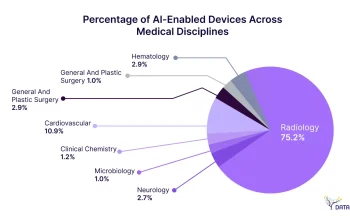Follow your doctor’s orders carefully – any doubts should be immediately addressed with him/her.
It is very important to eat healthy following a surgery.Speak with your doctor on what kind of food is best to consume and avoid processed food with large quantities of sugar and salt as well as calories.
Stay Hydrated
Fluids are very important for your body – they help remove waste, reduce friction and keep you hydrated, which is very important since proper hydration is extremely crucial after surgery. Water is your optimal choice for hydration, but clear liquid broth, juice and tea can be beneficial as well. Caffeinated or sugary beverages aren’t advisable as they cause dangerous dehydration pretty quickly. Adding electrolytes such as sodium, potassium chloride and magnesium to your diet is also at play.
Eat a Healthy Diet
Eat plenty of rich-calorie/nutrient-food meals before surgery (and keep freezer-stocked store food for postoperative convalescence) to induce stress-and-pain-reducing satiety. Pain medications plus immobility and changes in diet could cause stool to become hard and dry, which can result in constipation. Eat high fibre foods such as leafy green vegetables, fruits, whole grains. Try to include protein foods, such as nuts and nut butter in your daily diet, to help prevent constipation.
Get Plenty of Sleep
Healthy people need sleep, but surgery might hinder the time you spend sleeping. General anaesthesia, and pain medication could throw off your sleep cycle. Staff walking in and out of a room, lab work, too, could thwart restful sleep. If you are having problems sleeping, I would urge you to call your doctor as soon as possible to have your medications adjusted appropriately, and to consider ways of improving your sleep, as well as potential lifestyle or dietary changes that you might make to enhance it.
Move Around
It is difficult, but soon after surgery, if possible, patients should get out of bed. If they remain in bed, they could develop pneumonia or blood clots that require hospitalisation.
Avoid overdoing physical activity; pushing too hard could result in injury.
Set up help for child care, house cleaning, shopping and driving to and from appointments. Stock your freezer with meals that can easily be warmed up so you will have one less thing to worry about.
Get Plenty of Rest
Rest is also imperative in your recovering process. Whenever possible, you should try to get 7-9 hours of unbroken, restorative sleep each night. If you’re having trouble falling asleep at night, take short naps in the daytime until it’s time for bed again. Eating right is also very important, even after surgery has altered your taste and diminished your appetite; it will help the healing process progress faster. And last, but definitely not least, be sure to take all medications exactly as prescribed by your doctor. He has given them to you for a reason!
Take Your Medications
If you get the right drug, you will feel better more quickly. But the right dosage and frequency is important, too – as is whether taking the drug interacts with any others you might be taking. It’s wise to stock up on prescriptions in such a way that someone else can pick them up at the pharmacy, just before your surgery, and have some nutritious food – eg, organic nutrition drinks – on board, to provide good protein and energy during those early days after surgery.
Schedule Your Follow-Up Appointments
After exiting a clinic, the majority of patients set an appointment for their next visit immediately, presumably so as not to forget this date later on. When a patient makes the entry in a paper journal right after leaving the medical office, she stands a better chance than if she entered it days afterwards. Don’t think that follow-up visits are unnecessary if your surgical site seems to be healing. Your doctor will want to check your blood work and any other signs of infection.
Talk to Your Doctor
Obviously, your doctor needs to understand your full history, medications you’re taking, and any known allergies and other issues before devising the best plan for your care after surgery. It can also be helpful to share your expectations with your doctor before surgery, as they should be able to predict how you are likely to react following surgery. What do your hopes reveal to you about what you expect of yourself? Studies have shown that the views of patients about their experience pre-surgery often tally closely with how fast their actual experience unfolds.




